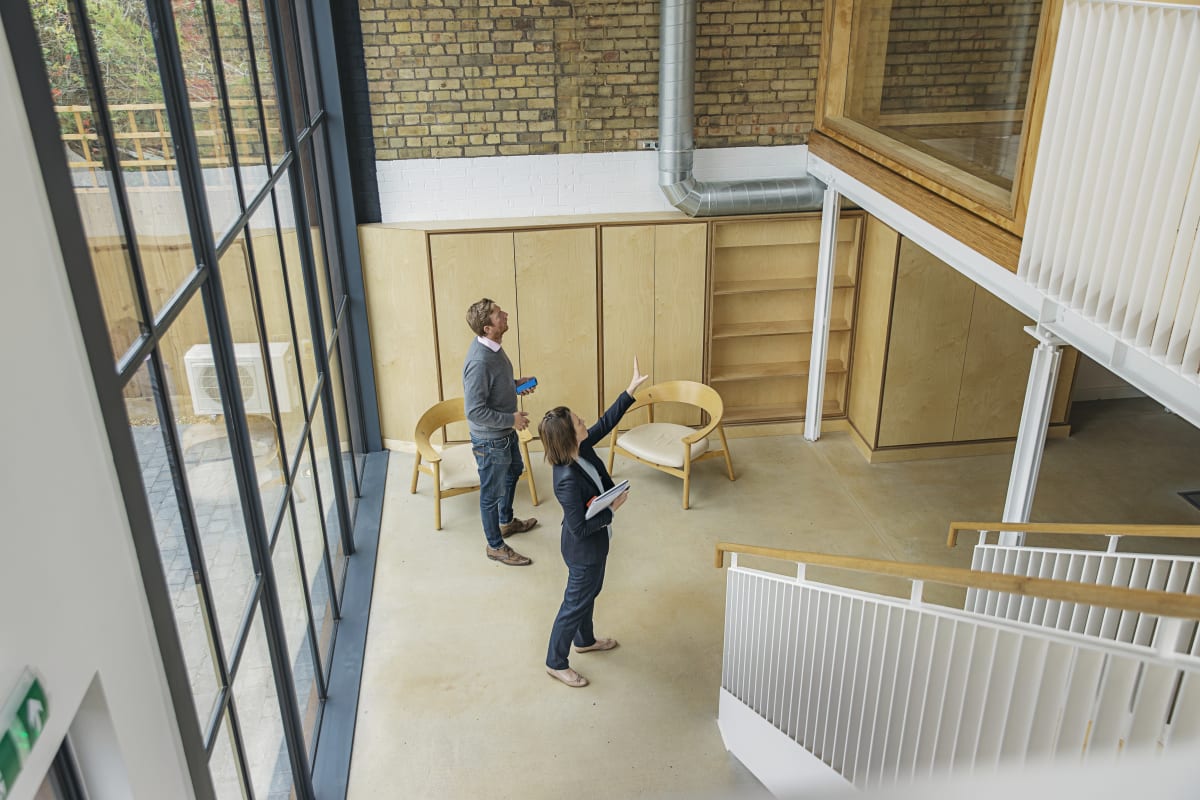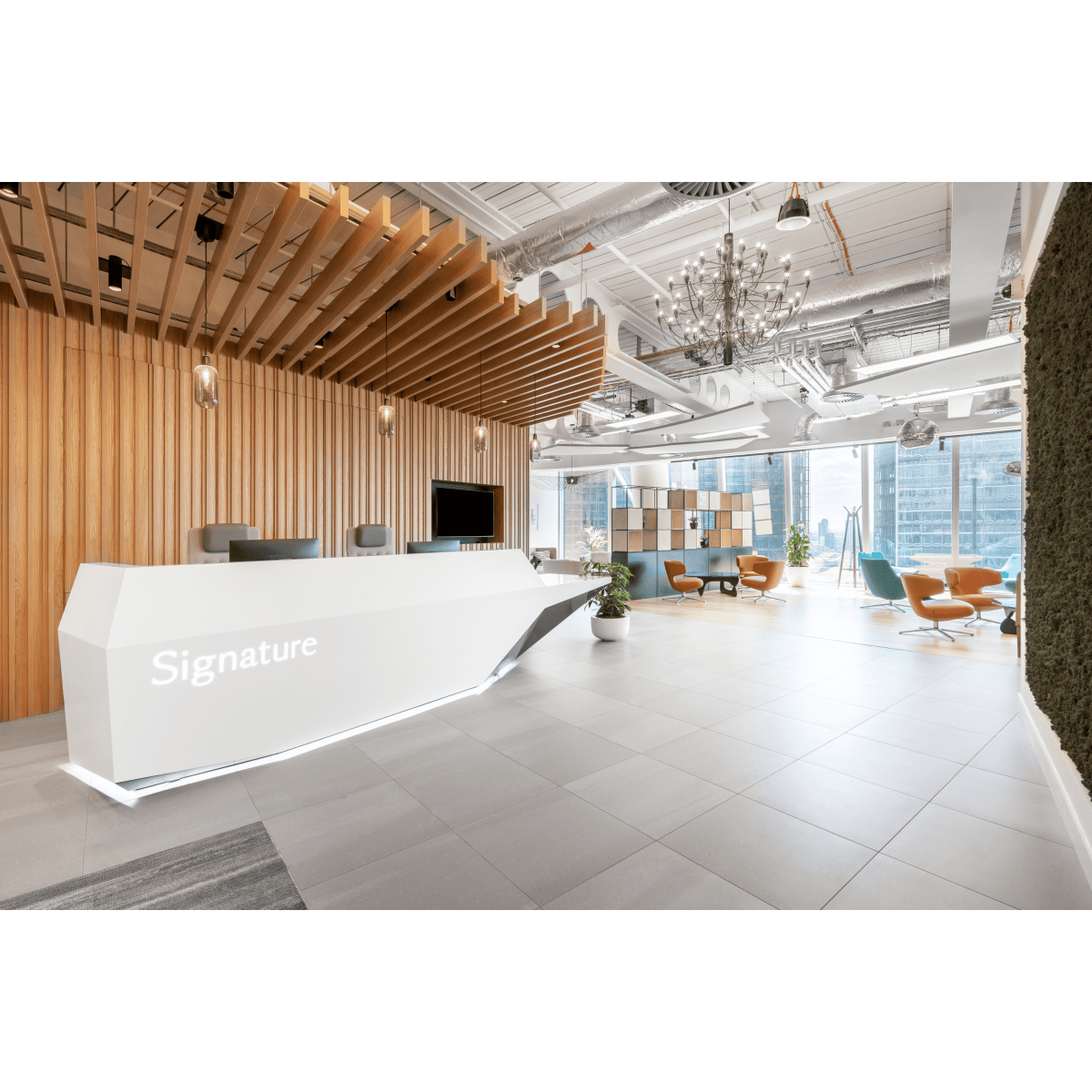Located in The Ice Blocks - a design-forward mixed-use development in Sacramento’s Midtown - Spaces R Street sits alongside trendy urban housing, shops and restaurants, creating a multifunctional urban hub for hybrid workers.
Construction is in Mike Heller’s blood. His father was a builder, so it was perhaps fated that he would follow in his footsteps by becoming a property developer, starting his own real estate business Heller Pacific in 1997. But his passion goes beyond simple bricks and mortar. His work is driven by “civic goals” with the aim of creating innovative, sustainable developments that will stand the test of time.
Speaking to IWG, Heller explains that his mission statement for the last 25 years has been to build “progressive, design-focused, mixed-use urban projects”. It’s this devotion that brought him back to his hometown of Sacramento in 1991 after many years away. He says: “We’ve always had an inferiority complex about being so near to San Francisco, but in central California, away from the coast, and not being considered as cultured or sophisticated or cool. So I just said ‘I’m going to help change that.’”
It was with this mindset, that Heller seized the opportunity to redevelop a collection of historic warehouses in Sacramento’s Midtown district, transforming them into an urban neighbourhood hub for living, working, dining and shopping. The result? The visionary Ice Blocks complex, also home to IWG flexspace, Spaces R Street.
Spanning three city blocks and with 1,200 sq ft of frontage on Sacramento’s historic R Street corridor, the project has seen the creation of 60,000 sq ft of retail units, 110,000 sq ft of creative office space, and 150 units of high-density urban housing. Making it a mixed-use development was important to Heller, allowing him to secure a curated mix of tenants and in doing so create a dynamic community, and a destination where like-minded people and businesses would gravitate.
The importance of this is reflected in new living and working habits triggered by Covid-19. One of the few silver linings of the pandemic has been the accelerated uptake of hybrid work - where employees are empowered to split their time between a central HQ, home and a flexspace close to where they live. With the better work-life balance that this affords, people are now spending more time within their neighbourhoods and, as a result, demand for local, vibrant hubs to live, work and play - such as The Ice Blocks - has soared.
Heller explains that he always strives to be a pioneer in development. When the green movement took off in California, for example, he made it his goal to create buildings that were self-sustainable. He wanted to be the first to show others that it was possible. So when mass heavy timber buildings started trending in the Pacific Northwest of America, he made it his ambition to be one of the first to do it in California with the redevelopment of The Ice Blocks.
He says the architecture of the building is a huge part of the attraction for tenants – the use of heavy timber throughout gives the building back its “soul”; something which is often lost when historic buildings are renovated. Heller claims it was an important factor in IWG’s decision to open a flexible workspace there, which he states is “heads and shoulders” above the rest of the coworking facilities in the region.
Like most businesses, the pandemic hit Heller Pacific hard financially. However, Heller is keen to point out that one of the advantages of a mixed-use development is the ability to diversify, which is especially important in the new commercial property landscape. He believes that Covid-19 has been a game-changer for everyone and that landlords and property developers have to be more nimble, more willing to pivot and make smarter choices going forward.
The widespread adoption of hybrid working is an example of this. With professionals no longer commuting into city centre headquarters on a daily basis, many companies are choosing to reduce the size of them, and in some cases, renouncing their leases or subletting their buildings.
As a result, Heller doesn’t believe that there are going to be many traditional office buildings being developed in the near future. While companies will still require HQs for practical reasons, their purpose has fundamentally changed. Companies no longer need offices that contain rows upon rows of desks, but inspiring, well-designed spaces for networking and collaboration. And this comes with the greater need for flexible workspace to meet demand for hybrid work solutions - and this, Heller argues, presents a clear case for landlords looking to diversify their portfolios.
So how can property developers and owners adapt to this new world of work? Heller believes that flexible work and office space offers the best solution for both landlords and customers. With hybrid work undoubtedly here to stay, it’s a “good business strategy” for landlords because it helps to future proof their real estate portfolios. For customers, flexspace comes with many benefits, one being that business owners don’t have to sign long, expensive leases, and have the ability to scale up and down according to their current business needs.
And for IWG, Heller says: “When Spaces opened its doors at The Ice Blocks, they had a beautifully designed, two storey space that is dramatic and dynamic. They opened at the outset of Covid-19 and struggled, like everybody else. But now, with new working habits and people’s desire to stay in the heart of their communities, occupancy is going up and I am really bullish about the future for them. I predict they’re going to do really well and will want to expand.”
Flexible workspace is the fastest-growing sector of the global workplace market. Make the most of this exciting investment opportunity by partnering with IWG today.






